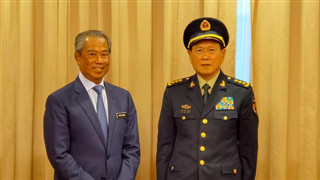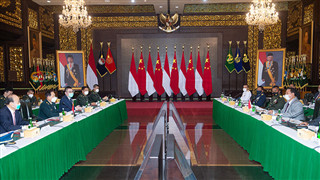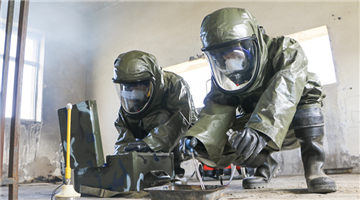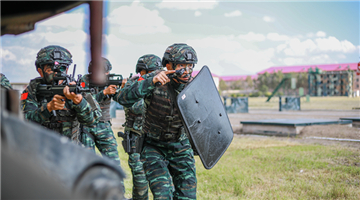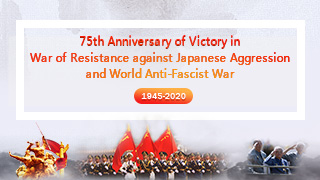By Li Yun and Sun Luming
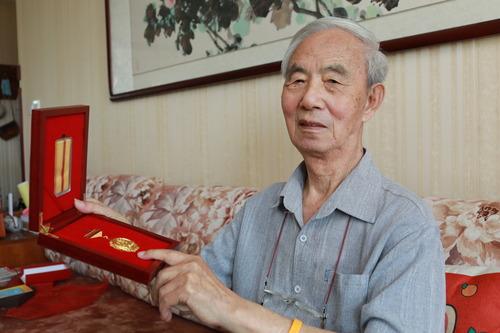
95-year-old Su Ying was born in 1925. His hometown is today's Shunping County, Hebei Province. During the Chinese People's War of Resistance against Japanese Aggression, Shunping County was originally called Wanxian County. It was located in the Shanxi-Chahar-Hebei Border Area under the leadership of the Communist Party of China, where armed forces against Japanese aggression were active.
"The Japanese troops came to raid our village very often," Su recalled, "The school was closed. After the Lugou Bridge Incident, at the age of 12, he joined the children's corps in the village. He and other children in the corps help militiamen perform guard and sentry duties.
In 1938, Dr. Norman Bethune (1890-1939) via Hong Kong and Yan'an arrived in the Shanxi-Chahar-Hebei Border Area, where the Eighth Route Army troops faced a serious shortage of both medical workers and supplies. This international communist fighter not only brought medicines and medical devices to the base area, but also began to train doctors and nurses, who were in urgent need in the base areas.
Having studied in the primary school and being able to read and write, he was dispatched to attend the training course of medics, Su said.
In Niuyangou, a small village in Tangxian County of North China's Hebei Province, Su met Dr. Bethune for the first time. "He is very kind and treats our children very well," Su remembered.
At that time, Su Ying didn't know that the Canadian later became a well-known international communist fighter in China. At first, Su didn't even know his name was "Bethune". He only knew that this foreigner in the Eighth Route Army uniform was extremely busy.
"He was always working, and I never saw him take a break. He could speak very little Chinese, so the interpreter had to follow him all the time," Su said.
In this way, Dr. Bethune became Su's teacher. "There was no fixed place for the training class. Sometimes it's in the home of a fellow villager, sometimes in the open space." Su Ying said.
Dr. Bethune showed great patience in the face of this group of young students. He demonstrated every step including disinfecting, stopping bleeding, bandaging, and fixing, etc.
"The treatment of the head was the most difficult. The scope of the disinfection of the wound should be larger, and it needs to be disinfected several times. When bandaging the wound, the gauze should be folded three times and then knotted so that it can be fixed properly." Many years has passed, Su still remembers clearly how to deal with head wounds.
During that time, Su also followed Dr. Bethune to carry out emergency treatment for a wounded Japanese soldier. The head of the wounded Japanese soldier was fatally bruised by a bullet, and his face was covered in blood when he was rescued from the battlefield. Discovering the patient was Japanese, Su was reluctant to come forward and treat him.
At that time, Dr. Bethune had already come up, he disinfected, stanched bleeding and bandaged the Japanese soldier, sparing no time. This scene taught Su Ying a vivid lesson on humanitarianism. "Military medics should rescue and treat the wounded no matter he was on which side at war." This is what Su Ying learned from Bethune.
Later, the task of dressing change for the Japanese soldier was handed over to Su Ying. "When he recovered and left the ward, he gave us a thumbs-up and kept bowing," Su said, adding that the wounded Japanese soldier later stayed and joined the anti-war alliance and became an anti-fascist fighter.
Not long after that, Su also left the training class and rushed to the front with the Eight Route Army troops. About one year later, when he learned the death of Bethune , he couldn't believe it. " Doctor Bethune is such a man that has devoted his life to his career and cares little about the tough living conditions. He spends all of his time either teaching young people or treating the wounded. How could that happen to him?" Su Ying muttered to himself for a long time.

